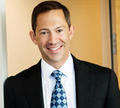Last year, the Department of Labor issued a mandate stating that all financial professionals who work with retirement plans or give retirement planning advice must begin acting as a “fiduciary” starting April 2017. Recently the fiduciary rule has made headlines yet again, this time due to Donald Trump’s executive order calling for an investigation into the rule’s effects. What does that mean for you as an investor?
What is the fiduciary standard?
The difference between a fiduciary and a traditional broker is that a fiduciary is obligated to act in his or her clients’ best interest. This is a much higher level of accountability than the “suitability” standard brokers to which brokers were held in the past. The lesser suitability standard remains in place today largely due to brokerage houses lobbying to justify different hidden fees.
Think of it this way: a broker can act like a car salesman, selling you any car on the lot that is “suitable” and will get you from point A to point B, even if the salesman earns a higher commission by selling one car than another, and the car costs a fortune in maintenance. Perhaps this is why the financial industry has come under harsh criticism in recent years for its high fees and conflicts of interest. A fiduciary, on the other hand, is obligated to pick the best car for you.
The fiduciary rule only governs retirement accounts
Here’s where things get confusing. Because the jurisdiction of the Department of Labor is limited, the rule in question would only apply to retirement accounts. That means brokers can still earn unlevel commissions and fail to act in their clients’ best interest in non-retirement accounts, leading to criticism that the rule doesn’t go far enough. The rule doesn’t quite make sense as is – it’s like if a doctor was required to use a clean scalpel, but only when operating on the top half of your body.
Opponents of the rule assert that it restricts investor choice, and investors should be able to pay for unlevel, commission-based retirement advice if they choose. While more choice generally isn’t a bad thing, the current environment opens the door for unsuspecting investors to be exploited. Doctors, lawyers, and CPA’s have been looking out for their client’s best interest from the beginning. Why should financial advisors be any different?
Many advisors, like Glassman Wealth Services, already act as a fiduciary for clients in all accounts and don’t earn a higher fee by recommending one investment over another. But many investors aren’t aware of the differences between various types of financial advisors. This is as much an awareness issue as a legal issue.
Effects of the fiduciary rule
Keep in mind that if the DOL rule is implemented, many brokerage firms may start to advertise that they operate as fiduciaries (even if it’s just sometimes), but will still only maintain the lesser suitability standard on non-retirement accounts. Unfortunately, this could lead to even more confusion in the eyes of clients and investors.
While Trump’s administration may end up delaying or even dismantling the fiduciary rule altogether, hopefully the recent publicity will open investors’ eyes to exactly how advisors and brokers are compensated.
The 5 toughest questions you should be asking your financial advisor during a Trump Presidency.
Barry Glassman is the founder and president of Glassman Wealth Services®, LLC. His vision for starting GWS was to deliver investment strategies and wealth management services typically available at the highest levels of wealth. Today, clients benefit from these sophisticated financial services targeted to meet their unique needs.
Along with the firm’s Chief Investment Officer, Barry leads a team of investment specialists that create asset allocation strategies for high-net worth families. They seek out the most attractive and appropriate investment ingredients, and then construct portfolios to meet our clients’ goals from capital preservation and income generation to tax-efficiency and growth.
Barry has been honored with Top Advisor awards from Barron’s, Washingtonian, Washington Business Journal, Financial Times, Reuters, Investment News, Institutional Investor, Virginia Business and Registered Rep to name a few.
His thought-leadership is driven by his desire to find new and interesting ways to educate investors. He has created interesting infographics and visuals to help explain complex financial concepts and shares these through his columns at Investment News and Forbes.com.
Barry also provides financial commentary to the media. He has appeared in The Wall Street Journal, Washington Post, Money, Business Week, Smart Money, Kiplinger’s Personal Finance, The Associated Press, Bloomberg, National Review, The International Herald Tribune, and USA Today. He has also appeared on several national television programs to include Wall Street Week with Louis Rukeyser, World News Tonight with Peter Jennings, CNBC and Bloomberg News.
A graduate of George Washington University, Barry has, in post graduate work through the College for Financial Planning, achieved his status as a CERTIFIED FINANCIAL PLANNER™ practitioner. He has also earned the Certified Funds Specialist designation. He is an Investment Advisor Representative and has retained the 65 securities registration.
Additionally, Barry is past-Chairman of the National Financial Planning Association’s Tax Sub-Committee and past-president and Chairman of the Financial Planning Association’s National Capital Area Chapter. He served on the Board of Directors of the International Association for Financial Planning for a total of six years.

Post new comment
Please Register or Login to post new comment.